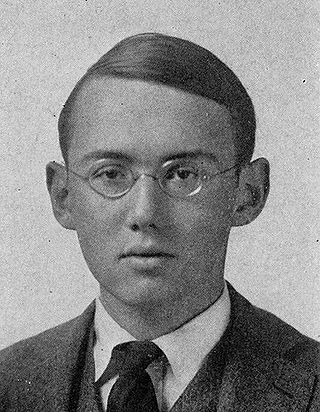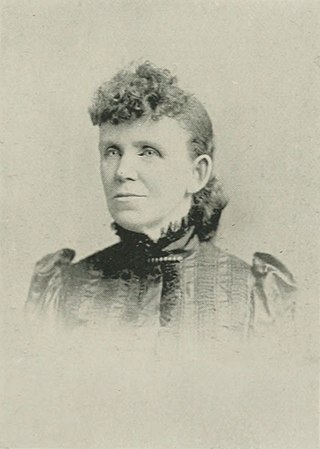
"And did those feet in ancient time" is a poem by William Blake from the preface to his epic Milton: A Poem in Two Books, one of a collection of writings known as the Prophetic Books. The date of 1804 on the title page is probably when the plates were begun, but the poem was printed c. 1808. Today it is best known as the hymn "Jerusalem", with music written by Sir Hubert Parry in 1916. The famous orchestration was written by Sir Edward Elgar. It is not to be confused with another poem, much longer and larger in scope and also by Blake, called Jerusalem The Emanation of the Giant Albion.

Robert Seymour Bridges was a British poet who was Poet Laureate from 1913 to 1930. A doctor by training, he achieved literary fame only late in life. His poems reflect a deep Christian faith, and he is the author of many well-known hymns. It was through Bridges's efforts that the poet Gerard Manley Hopkins achieved posthumous fame.

Sir Charles Hubert Hastings Parry, 1st Baronet, was an English composer, teacher and historian of music. Born in Richmond Hill in Bournemouth, Parry's first major works appeared in 1880. As a composer he is best known for the choral song "Jerusalem", his 1902 setting for the coronation anthem "I was glad", the choral and orchestral ode Blest Pair of Sirens, and the hymn tune "Repton", which sets the words "Dear Lord and Father of Mankind". His orchestral works include five symphonies and a set of Symphonic Variations. He also composed the music for Ode to Newfoundland, the Newfoundland and Labrador provincial anthem.

Christina Georgina Rossetti was an English writer of romantic, devotional and children's poems, including "Goblin Market" and "Remember". She also wrote the words of two Christmas carols well known in Britain: "In the Bleak Midwinter", later set by Gustav Holst, Katherine Kennicott Davis, and Harold Darke, and "Love Came Down at Christmas", also set by Darke and other composers. She was a sister of the artist and poet Dante Gabriel Rossetti and features in several of his paintings.

Christopher Wordsworth was an English intellectual and a bishop of the Anglican Church.

Stephen Vincent Benét was an American poet, short story writer, and novelist. He wrote a book-length narrative poem of the American Civil War, John Brown's Body, published in 1928, for which he received the Pulitzer Prize for Poetry, and for the short stories "The Devil and Daniel Webster", published in 1936, and "By the Waters of Babylon", published in 1937.

War poetry is poetry on the topic of war. While the term is applied especially to works of the First World War, the term can be applied to poetry about any war, including Homer's Iliad, from around the 8th century BC as well as poetry of the American Civil War, the Spanish Civil War, the Crimean War and other wars. War poets may be combatants or noncombatants.

Lady Margaret Sackville was an English poet and children's author.

Rustington is a village and civil parish in the Arun District of West Sussex. Rustington is approximately at the midpoint of the West Sussex coast and midway between Chichester and Brighton. The A259 runs along the north of Rustington, westward to Littlehampton, Bognor Regis and Chichester, and east to Worthing and Brighton. The area forms part of the Brighton and Hove built-up area.

"Dear Lord and Father of Mankind" is a hymn with words taken from a longer poem, "The Brewing of Soma" by American Quaker poet John Greenleaf Whittier. The adaptation was made by Garrett Horder in his 1884 Congregational Hymns.
Events from the year 1917 in the United Kingdom. The year was dominated by the First World War.
Anna Letitia Waring was a Welsh poet and Anglican hymn-writer. Her philanthropic support included the Discharged Prisoners' Aid Society. She brought out her first hymn collection in 1850, but much of her work remained unpublished at the time of her death. A 1911 posthumous edition collected most of this, religious and secular.

Frederick George Scott was for the first part of his life an Anglican priest and a Canadian poet to whom the Canadian literary establishment gave the epithet "Poet of the Laurentians." He was associated with Canada's Confederation Poets, and wrote 13 books of Christian and patriotic poetry, often using the natural world to convey deeper spiritual meaning.

Eleanor C. Donnelly was an American poet, short story writer and biographer. She was known as "The Poet of the Pure Soul". Her brother was the lawyer and author Ignatius L. Donnelly, who served as lieutenant governor and U.S. Congressman from the state of Minnesota.
A Choice of Kipling's Verse, made by T. S. Eliot, with an essay on Rudyard Kipling is a book first published in December 1941. It is in two parts. The first part is an essay by American-born British poet T. S. Eliot (1888–1965), in which he discusses the nature and stature of British poet Rudyard Kipling (1865–1936). The second part consists of Eliot's selection from Kipling's poems.

George Edward Archibald Augustus FitzGeorge Hamilton was a British Army officer during the First World War and a distant relative of the British royal family. He was the only son of Sir Archibald Hamilton, 5th Baronet and Olga FitzGeorge, and was the heir to the Hamilton baronetcies of Trebinshun House and Marlborough House.

Charlton Miner Lewis was an American scholar of English literature. Having attended Yale University and studied law, he worked as a lawyer for a few years before returning to Yale as a teacher, getting his Ph.D., and publishing a number of books on English versification and literature.














